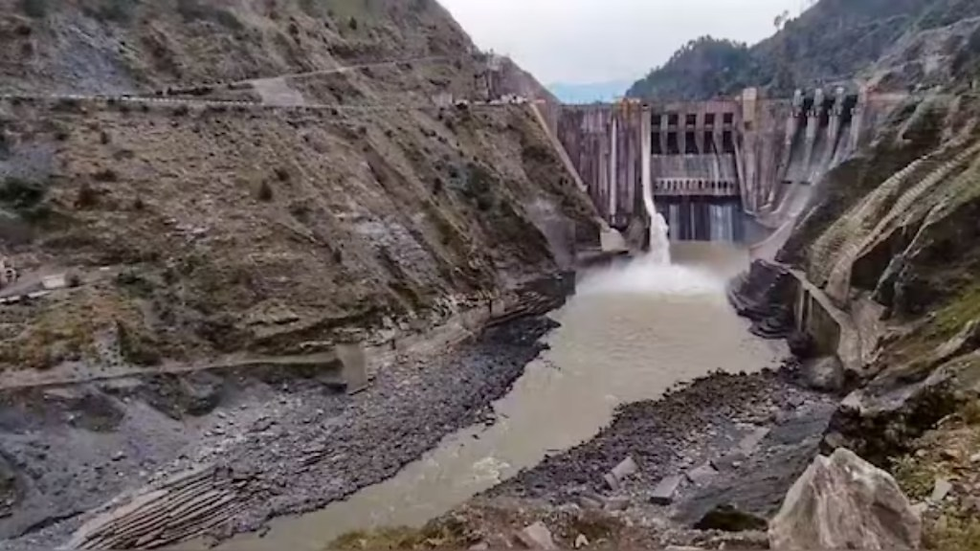India Rejects Hague Arbitration Ruling, Declares Tribunal “Illegal” Amid Indus Waters Treaty Crisis
- MGMMTeam

- Jul 3, 2025
- 4 min read
The Indian government has taken a firm stance against a recent ruling by the Hague-based Court of Arbitration (CoA) concerning the long-standing water dispute with Pakistan under the Indus Waters Treaty (IWT). India’s Ministry of External Affairs (MEA) has rejected the court’s supplemental award on the Kishenganga and Ratle hydroelectric projects, calling the tribunal “illegal,” “per se void,” and a “charade at Pakistan’s behest.” This rejection underscores India’s broader refusal to accept the legitimacy of the tribunal, which it accuses Pakistan of constituting in violation of the treaty’s agreed procedures.

Background: The Indus Waters Treaty and the Court of Arbitration
The Indus Waters Treaty, signed in 1960 between India and Pakistan under the mediation of the World Bank, has governed the distribution and use of the Indus River system’s waters for over six decades. The treaty outlines dispute resolution mechanisms, primarily relying on a neutral expert appointed under Annexure-F for technical disagreements. Arbitration under Annexure-G, involving the CoA, can only be invoked under specific circumstances agreed upon by both parties.
India argues that Pakistan unilaterally formed the Court of Arbitration without India’s consent, bypassing the neutral expert process. This unilateral action, according to Indian officials, violates the treaty’s provisions and undermines its spirit. India maintains that the tribunal’s constitution itself was illegal, and therefore, its rulings lack any binding authority.
Suspension of Treaty Obligations Following Terror Attack
The situation escalated sharply after the Pahalgam terror attack on April 22, 2025, which India attributes directly to Pakistan-backed militants. In response, India suspended its obligations under the Indus Waters Treaty, invoking sovereign rights in light of Pakistan’s alleged involvement in cross-border terrorism. The MEA has made it clear that during this suspension, India is not bound by any arbitration proceedings or tribunal rulings, especially those it considers illegitimate.
India emphasizes that sovereignty and national security concerns take precedence over treaty obligations when a party to the treaty is found sponsoring terrorism. This move reflects a broader shift in India’s policy towards Pakistan and the treaty’s future.
The Court of Arbitration’s Position and Pakistan’s Reaction
Despite India’s rejection, the Court of Arbitration has affirmed its jurisdiction and the validity of its rulings. The CoA insists that the treaty remains in force unless both countries mutually agree to terminate it, and that unilateral suspension by one party does not undermine the court’s competence to adjudicate disputes. The tribunal’s supplemental award reaffirmed its oversight over projects like Kishenganga and Ratle, which Pakistan has challenged as violating the treaty’s terms.
Pakistan welcomed the arbitration ruling as a vindication of its position and urged India to comply fully with the treaty. Pakistani officials have stressed that the IWT continues to be valid and operational, calling on India to resume its treaty obligations and respect the court’s decisions.
Escalating Geopolitical and Hydropolitical Stakes
This dispute carries significant geopolitical implications beyond the immediate Indo-Pak water sharing issues. Reports indicate that India is exploring alternative water management strategies, including plans to divert surplus flows from the Chenab River to Indian states such as Rajasthan, Punjab, and Haryana. Moreover, India is reportedly reconsidering its water sharing arrangements with Bangladesh concerning the Ganges River, reflecting a broader realignment of its regional water diplomacy.
Indian leaders, including Home Minister Amit Shah, have signaled a permanent shift in India’s approach by stating that the Indus Waters Treaty will never be restored in its current form. This hardline stance points to the growing tensions and the likelihood of prolonged hydropolitical contestation between the two neighbors.
Broader Implications for International Water Governance
Experts caution that India’s suspension of the treaty and rejection of international arbitration could set a precarious precedent for global water governance. As climate change intensifies water scarcity, transboundary rivers become increasingly vital sources of life and stability. The erosion of established legal frameworks such as the IWT may undermine cooperative water management, risking further conflict and instability.
While Pakistan faces immediate risks to its agricultural and energy sectors due to potential disruptions in Indus water flow, India also depends heavily on trans-boundary rivers that originate in neighboring countries like China, Nepal, and Bhutan. The fragility of these interconnected water systems calls for diplomacy and adherence to legal mechanisms rather than unilateral actions.
Conclusion
India’s categorical rejection of the Hague Court of Arbitration’s ruling on the Indus Waters Treaty dispute marks a pivotal moment in South Asia’s water politics. By labeling the tribunal illegal and suspending treaty obligations after a terror attack, India has signaled a new era of assertiveness in its relations with Pakistan. The unfolding dispute over the Kishenganga and Ratle projects is emblematic of broader challenges facing international water treaties, where sovereignty, security, and environmental concerns collide.
As India pursues alternative water management strategies and Pakistan seeks to uphold treaty mechanisms, the future of the Indus Waters Treaty hangs in uncertainty. This crisis underscores the urgent need for innovative diplomacy and cooperative frameworks that can address emerging geopolitical realities while safeguarding vital water resources for millions on both sides of the border.
(Sources: OpIndia, Financial Express, Indian Express)




Comments